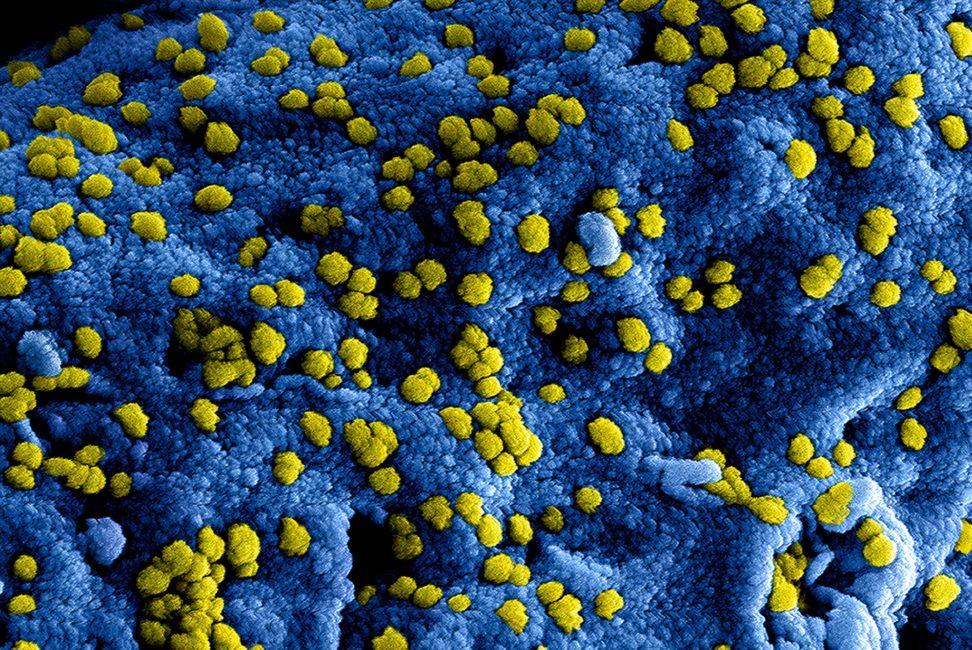November 23, 2021: “Gilead Sciences, Inc. announced that the European Commission (EC) has granted marketing authorization for Trodelvy® (sacituzumab govitecan), a first-in-class Trop-2-directed antibody-drug conjugate, as a monotherapy indicated for the treatment of adult patients with unresectable or metastatic triple-negative breast cancer (TNBC) who have received two or more prior systemic therapies, at least one of them for advanced disease.
“The metastatic stage of TNBC is particularly challenging to treat and until now we have urgently needed new treatment options for people in Europe living with this condition,” said Dr Véronique Diéras, Senior Medical Oncologist Head, Breast Cancer Group, Department of Medical Oncology, Centre Eugène Marquis, Rennes, France.
“Today’s approval including second-line metastatic TNBC is significant for the community as it’s another important step forward in helping women with this disease live longer.”
TNBC is the most aggressive type of breast cancer and accounts for approximately 15% of all breast cancers. It is more frequently diagnosed in younger and premenopausal women and is more prevalent in Black and Hispanic women.
The five-year survival rate for this sub-type of breast cancer is 12%, compared with 28% for other breast cancer types, and these poor outcomes are often coupled with a significant decrease in quality of life, especially in relapsed/refractory disease.
“At Gilead, we push boundaries to deliver transformative science and novel treatment options that address urgent medical needs,” said Merdad Parsey, MD, PhD, Chief Medical Officer, Gilead Sciences.
“We understand how difficult metastatic TNBC is to treat and we’re proud that Trodelvy can now offer a second-line treatment option with the potential to bring longer life to people living with this aggressive disease.”
The EC’s decision is supported by results from the Phase 3 ASCENT study, where Trodelvy reduced the risk of death by 49% and improved median overall survival to 11.8 months versus 6.9 months with physician’s choice of chemotherapy (HR: 0.51; 95% CI: 0.41-0.62; p<0.0001).
These data also showed a statistically significant and clinically meaningful 57% reduction in the risk of death or disease worsening and improved median progression free survival (PFS) to 4.8 months from 1.7 months seen with physician’s choice of chemotherapy alone among all randomized patients, which included those with and without brain metastases (HR: 0.43; 95% CI: 0.35-0.54; p<0.0001).
The most common Grade 3 or higher adverse reactions were neutropenia (49.5%), leukopenia (12.0%), diarrhea (10.7%), anemia (10.1%), febrile neutropenia (6.6%), fatigue (5.2%), hypophosphatemia (5.2%), nausea (4.1%) and vomiting (3.0%).
The Trodelvy U.S. Prescribing Information has a BOXED WARNING for severe or life-threatening neutropenia and severe diarrhea; see below for Important Safety Information.
In addition to this approval, Trodelvy is approved in Australia, Canada, Great Britain, Switzerland, and the United States in metastatic TNBC. Regulatory review is also underway in Singapore and China with applications submitted by Everest Medicines.
Trodelvy was also recently included in the updated ESMO Clinical Practice Guidelines as a preferred treatment option for metastatic TNBC after taxanes.
About the ASCENT Study
The ASCENT study is a global, open-label, randomized Phase 3 study that enrolled more than 500 patients across 230 study locations.
The study evaluated the efficacy and safety of Trodelvy compared with a single-agent chemotherapy of the physician’s choice in patients with unresectable, locally advanced or metastatic TNBC who had received at least two prior systemic treatments.
Patients were randomly allocated to receive either Trodelvy or a chemotherapy chosen by the patient’s treating physician.
The primary endpoint was progression-free survival (PFS, as determined by blinded independent central review) in patients without brain metastases. Secondary endpoints included: PFS for full study population or intention-to-treat (ITT) population, overall survival in both the ITT population and in the subgroup without brain metastasis, independently determined objective response rate, duration of response, time to onset of response according to Response Evaluation Criteria in Solid Tumors (RECIST 1.1), quality of life and safety.
More information about ASCENT is available at http://clinicaltrials.gov/show/NCT02574455.
About Triple-Negative Breast Cancer (TNBC)
TNBC is the most aggressive type of breast cancer and accounts for approximately 15% of all breast cancers.
TNBC is diagnosed more frequently in younger and premenopausal women and is more prevalent in Black and Hispanic women.
TNBC cells do not have estrogen and progesterone receptors and have limited human epidermal growth factor receptor 2 (HER2).
Due to the nature of TNBC, effective treatment options are extremely limited compared with other breast cancer types. TNBC has a higher chance of recurrence and metastases than other breast cancer types.
The average time to metastatic recurrence for TNBC is approximately 2.6 years compared with 5 years for other breast cancers, and the relative five-year survival rate is much lower. Among women with metastatic TNBC, the five-year survival rate is 12%, compared with 28% for those with other types of metastatic breast cancer.
About Trodelvy
Trodelvy is a first-in-class antibody and topoisomerase inhibitor conjugate directed to the Trop-2 receptor, a protein overexpressed in multiple types of epithelial tumors, including metastatic TNBC and metastatic urothelial cancer (UC), where high expression is associated with poor survival and relapse.
Trodelvy is approved in second-line metastatic TNBC in multiple countries worldwide, including Australia, Canada, Great Britain, the European Union, Switzerland and the United States. Trodelvy is also approved for use in metastatic UC in the United States.
Trodelvy continues to be developed for potential use in other TNBC and metastatic UC populations and is also being developed as an investigational treatment for hormone receptor-positive/human epidermal growth factor receptor 2-negative (HR+/HER2-) metastatic breast cancer and metastatic non-small cell lung cancer.
Additional evaluation across multiple solid tumors is also underway.”


